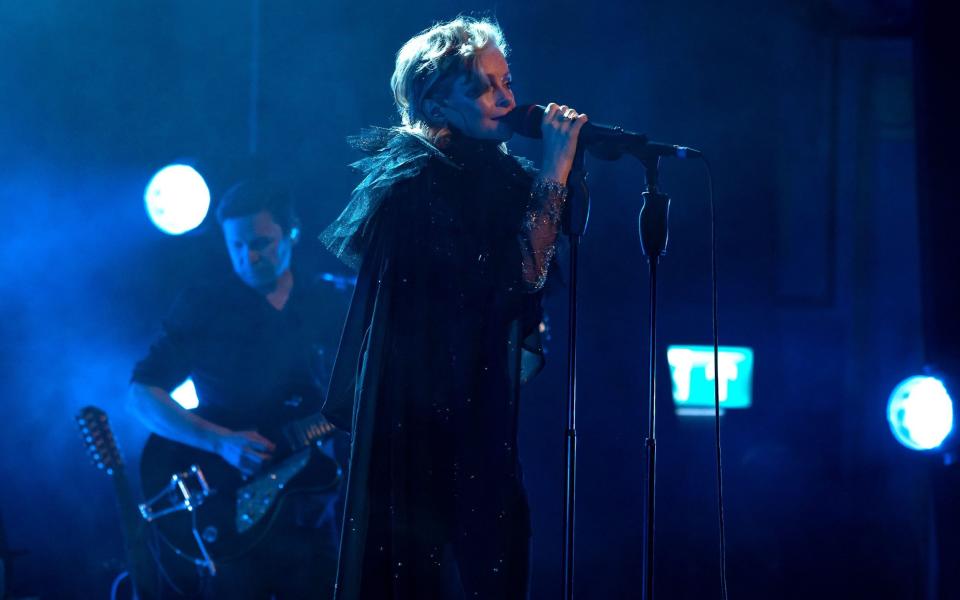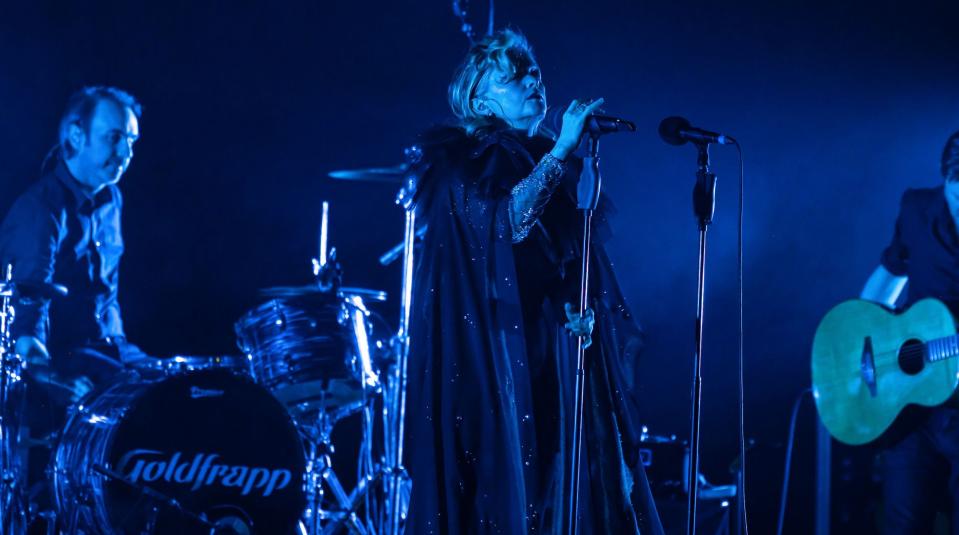Goldfrapp conjure up swooningly cinematic songs from another time and place

Maundy Thursday became mournful Thursday at London’s Royal Festival Hall as Goldfrapp played their debut album, Felt Mountain, in its entirety. Released in 2000, Felt Mountain mixed folk, 1960s pop, electronica and lush John Barry-style orchestrations to become a “chill-out” classic, selling 250,000 copies in the UK alone and earning a Mercury Prize nomination. Along with Air’s Moon Safari and Zero 7’s Simple Things, Felt Mountain became one of the defining albums of its genre.
Almost a quarter of a century later, the already-retro songs sounded like they were from another era entirely. This was music from a pre-9/11 and pre-streaming world, a safer place in which quirky cosiness, artful nostalgia and slow-paced soundscapes were enough to define a musical movement. Also, who but the very upper echelon of today’s pop stars sell more than 250,000 albums? For this reason, the show felt both bracingly innocent and slightly out of kilter with the modern world. And while always absorbing, the album-in-full format combined with the songs’ leisurely tempo to inevitably lead to some lulls as lesser-known tracks got an airing.
Surrounded by an eight-piece band, which included a string section, singer Alison Goldfrapp walked centre-stage dressed entirely in black, her translucent cape glistening under lighting that evoked the night sky. She launched into the extraordinary ethereal yodel that opens Felt Mountain’s title track – imagine Stevie Nicks-meets-Heidi-in-space and you get the idea.
Throughout, Goldfrapp used a second, pitch-shifting microphone to give her delivery a supernatural quality. It was, at times, spellbinding. Harpsichord-style piano was added by keyboard player Hazel Mills, playing the parts originally performed by Goldfrapp’s bandmate Will Gregory, not present. Mills, a member of Florence + the Machine, also provided backing vocals.
High strings, a shuffling rumba rhythm and stark stabs of synth made Human sound like a great Bond theme that never was. You could imagine Shirley Bassey belting this out. Indeed, much of the music was beautifully cinematic, with Ennio Morricone-style arrangements in plentiful evidence. Many of these tracks sounded like Portishead with the rough edges sanded down, and this is largely what “chill-out” was: trip hop without the menace.

Despite Alison Goldfrapp’s dextrous voice and intricate musicality, the set lacked oomph in places. Deer Stop, for example, was a glacial song too many. However the glorious Utopia, with its slow tick-tocking clock refrain and crunchy descending synth riff, exemplified the genre at its most achingly escapist and splendid.
A jolt replaced the chill in the encore, when Goldfrapp – always a shape-shifting performer – re-emerged in neon disco mode. She stomped around the stage and threw shapes to uptempo tracks Ride a White Horse, Strict Machine and Train, all from later albums. In a funny way, she seemed more free. She certainly had more presence, as though she could finally relax, having done what she’d set out to do. After the swooning beauty of Felt Mountain, it felt like a deserved finale.
Tour ends tonight at Royal Festival Hall; goldfrapp.com

 Yahoo News
Yahoo News 